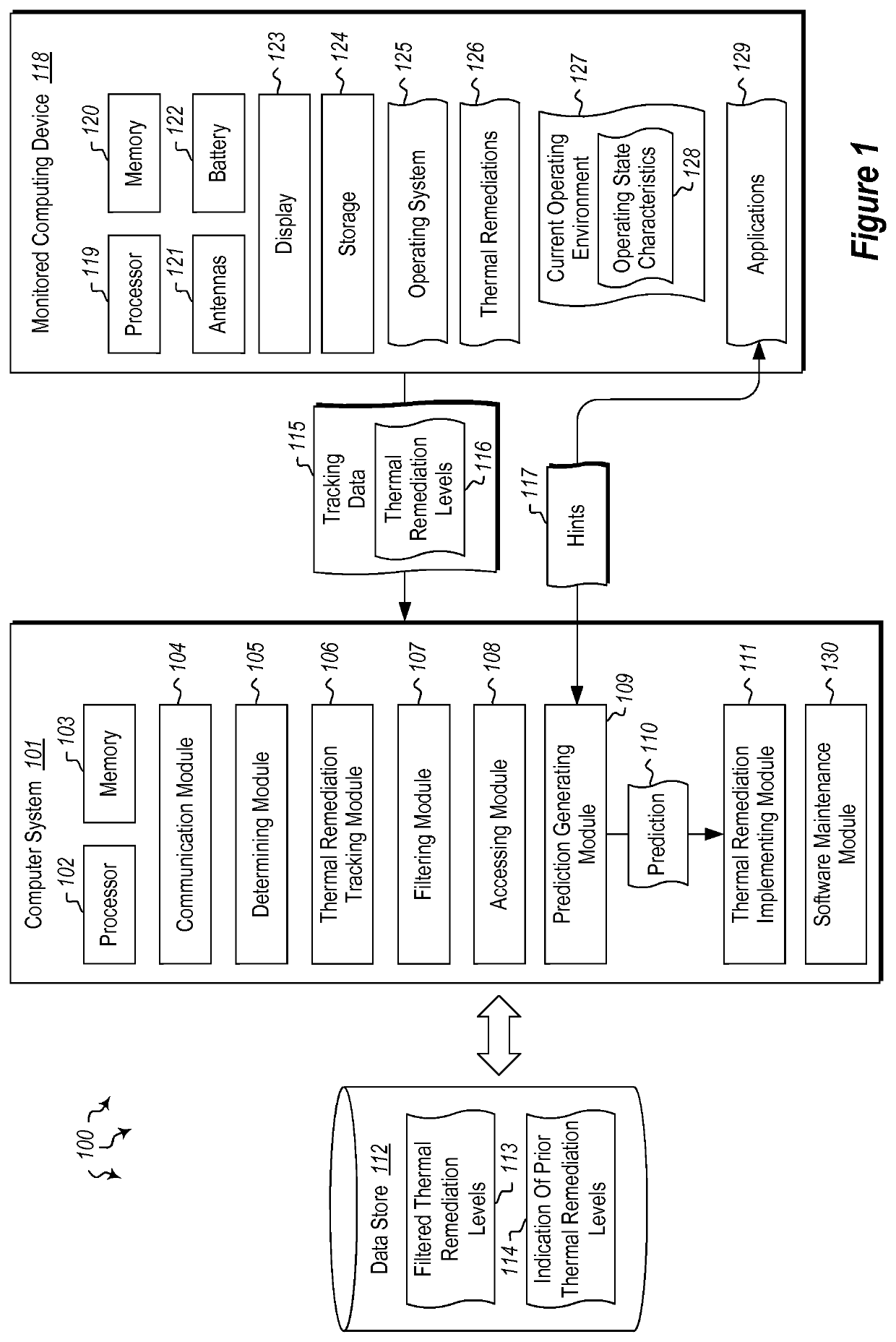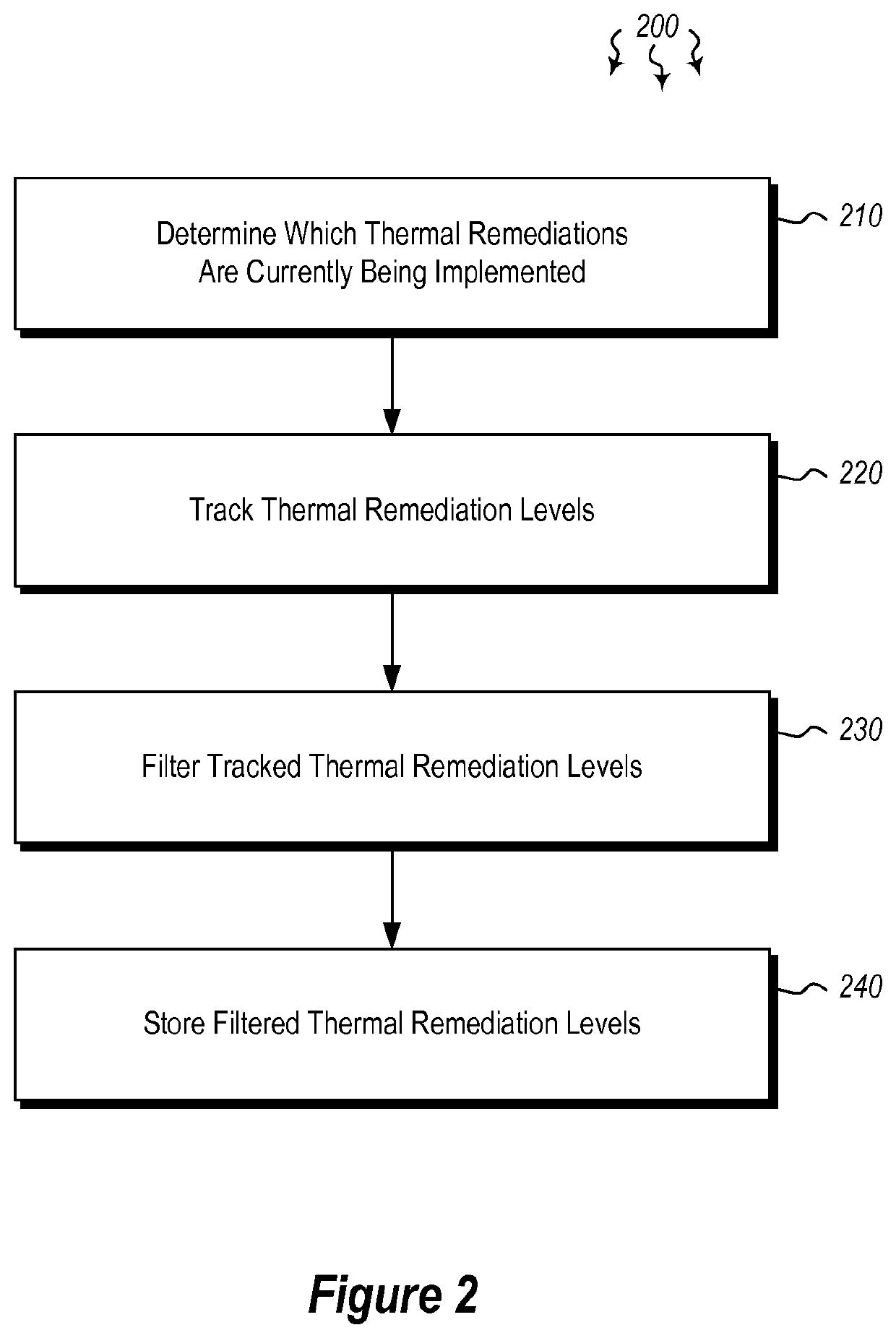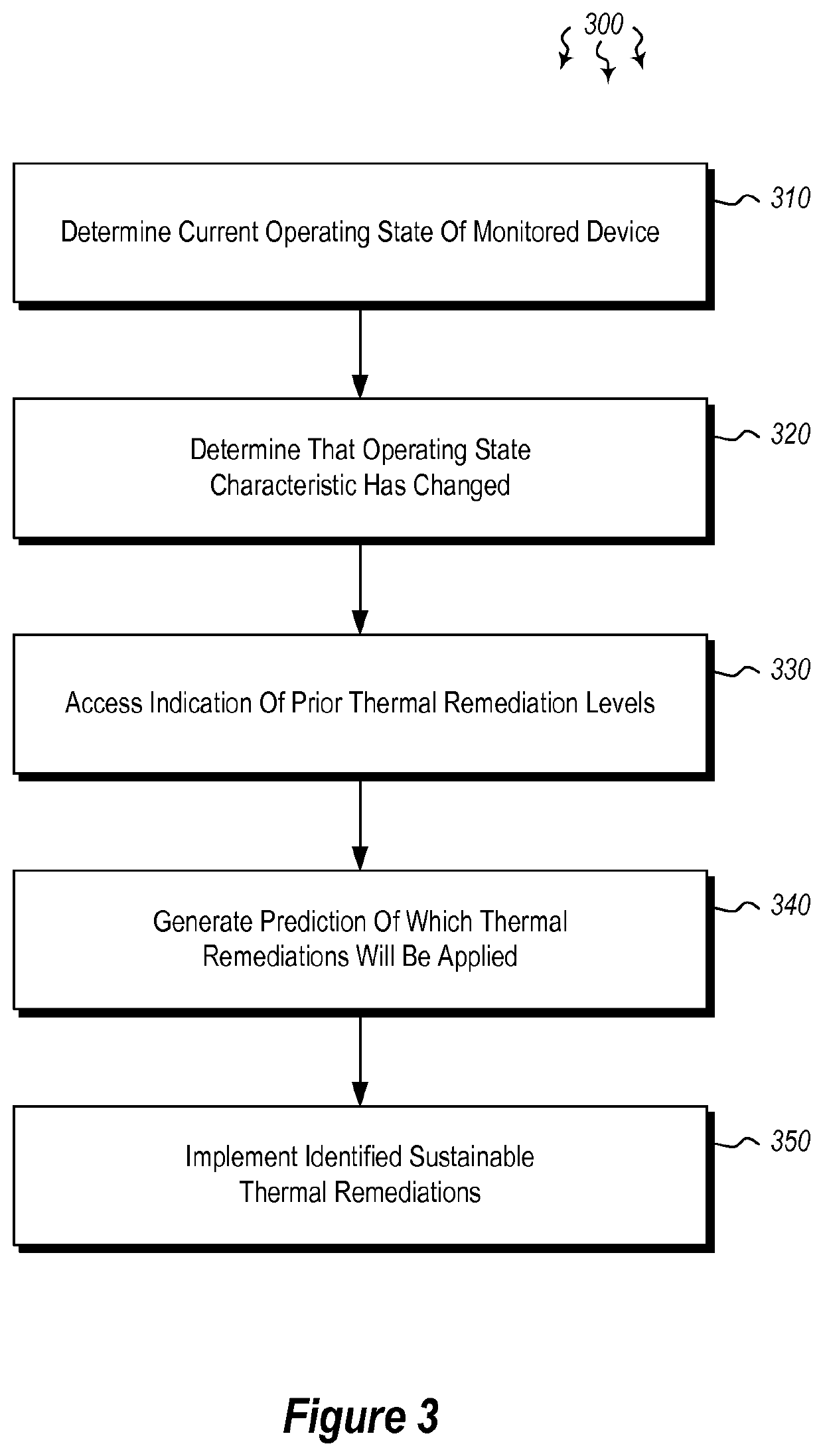Implementing thermal remediations in reaction to execution of software
a technology of thermal remediation and software, applied in the field of implementing thermal remediation in reaction to software execution, can solve the problems of limited processing level, less responsiveness, negatively affecting user experience, etc., and achieve the effect of dimming a display, preventing a battery from charging, and reducing a cpu
- Summary
- Abstract
- Description
- Claims
- Application Information
AI Technical Summary
Benefits of technology
Problems solved by technology
Method used
Image
Examples
Embodiment Construction
[0016]Embodiments described herein are directed to capturing and storing historical data regarding thermal remediations, predicting and acting on remediation futures and to communicating with applications regarding thermal remediations implemented on the computer system. It should be understood that when referring to “applications” herein, the term refers to applications or other pieces of software such as functions or methods. In one embodiment, a computer system determines which thermal remediations are currently being implemented on a monitored computing device. The thermal remediations may include reducing CPU or other hardware component clock frequencies, moving work items between CPU cores, dimming a display, preventing a battery from charging, reducing transmission rates on a network card, disabling antennas, disabling ports, reducing camera frame rates, reducing camera resolution, changing hardware component or platform idle states or other remediations. The thermal remediat...
PUM
 Login to View More
Login to View More Abstract
Description
Claims
Application Information
 Login to View More
Login to View More - R&D
- Intellectual Property
- Life Sciences
- Materials
- Tech Scout
- Unparalleled Data Quality
- Higher Quality Content
- 60% Fewer Hallucinations
Browse by: Latest US Patents, China's latest patents, Technical Efficacy Thesaurus, Application Domain, Technology Topic, Popular Technical Reports.
© 2025 PatSnap. All rights reserved.Legal|Privacy policy|Modern Slavery Act Transparency Statement|Sitemap|About US| Contact US: help@patsnap.com



